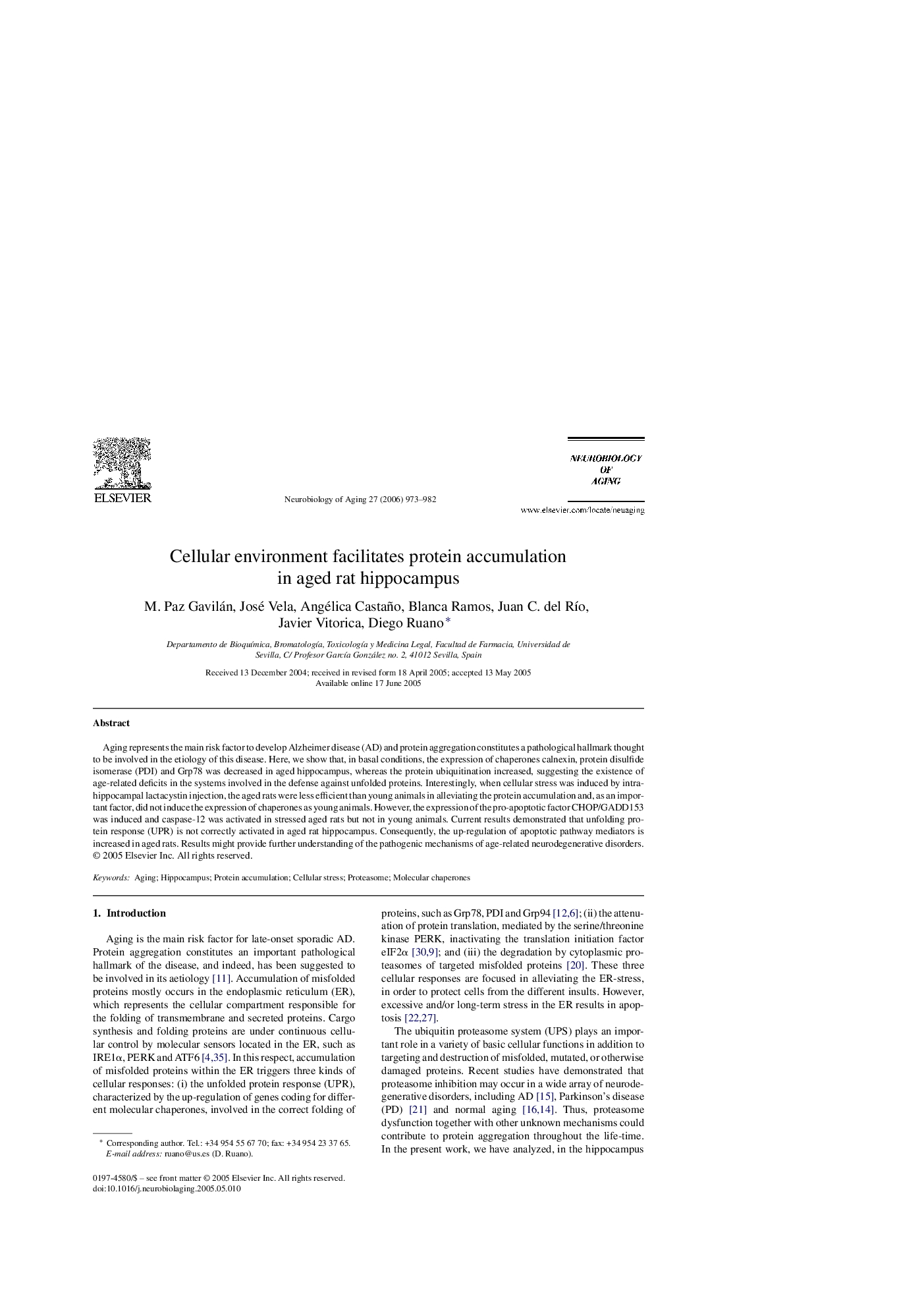| Article ID | Journal | Published Year | Pages | File Type |
|---|---|---|---|---|
| 331331 | Neurobiology of Aging | 2006 | 10 Pages |
Aging represents the main risk factor to develop Alzheimer disease (AD) and protein aggregation constitutes a pathological hallmark thought to be involved in the etiology of this disease. Here, we show that, in basal conditions, the expression of chaperones calnexin, protein disulfide isomerase (PDI) and Grp78 was decreased in aged hippocampus, whereas the protein ubiquitination increased, suggesting the existence of age-related deficits in the systems involved in the defense against unfolded proteins. Interestingly, when cellular stress was induced by intra-hippocampal lactacystin injection, the aged rats were less efficient than young animals in alleviating the protein accumulation and, as an important factor, did not induce the expression of chaperones as young animals. However, the expression of the pro-apoptotic factor CHOP/GADD153 was induced and caspase-12 was activated in stressed aged rats but not in young animals. Current results demonstrated that unfolding protein response (UPR) is not correctly activated in aged rat hippocampus. Consequently, the up-regulation of apoptotic pathway mediators is increased in aged rats. Results might provide further understanding of the pathogenic mechanisms of age-related neurodegenerative disorders.
